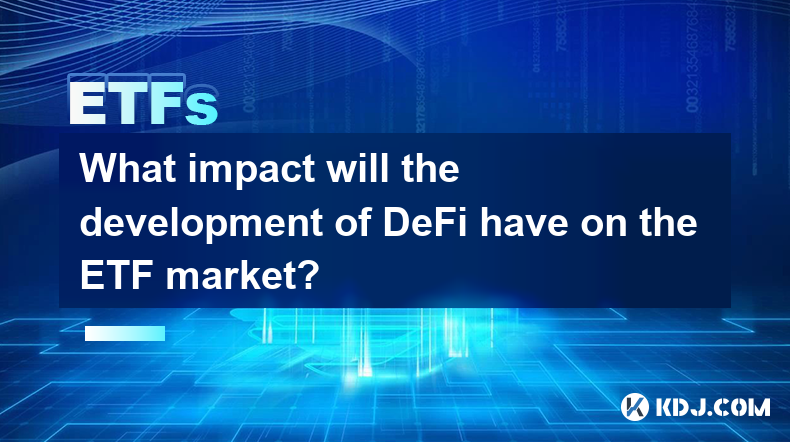-
 Bitcoin
Bitcoin $91,326.2112
4.73% -
 Ethereum
Ethereum $1,695.3184
7.62% -
 Tether USDt
Tether USDt $1.0005
0.05% -
 XRP
XRP $2.1510
3.43% -
 BNB
BNB $608.0825
2.14% -
 Solana
Solana $143.8333
5.33% -
 USDC
USDC $0.9999
0.00% -
 Dogecoin
Dogecoin $0.1719
8.85% -
 TRON
TRON $0.2453
-0.08% -
 Cardano
Cardano $0.6550
5.53% -
 Chainlink
Chainlink $13.8161
5.27% -
 Avalanche
Avalanche $21.6006
7.78% -
 UNUS SED LEO
UNUS SED LEO $9.0313
-1.17% -
 Stellar
Stellar $0.2608
2.91% -
 Sui
Sui $2.4556
11.84% -
 Shiba Inu
Shiba Inu $0.0...01320
6.30% -
 Toncoin
Toncoin $3.0062
3.66% -
 Hedera
Hedera $0.1770
3.91% -
 Bitcoin Cash
Bitcoin Cash $356.7500
3.40% -
 Hyperliquid
Hyperliquid $18.8079
5.10% -
 Litecoin
Litecoin $82.8692
6.10% -
 Polkadot
Polkadot $3.9082
1.95% -
 Dai
Dai $1.0000
0.00% -
 Bitget Token
Bitget Token $4.5162
1.92% -
 Ethena USDe
Ethena USDe $0.9997
0.04% -
 Pi
Pi $0.6391
0.53% -
 Monero
Monero $222.2978
3.60% -
 Pepe
Pepe $0.0...08402
7.94% -
 Uniswap
Uniswap $5.6203
6.54% -
 Aptos
Aptos $5.1283
2.40%
What impact will the development of DeFi have on the ETF market?
DeFi empowers ETF investors with enhanced accessibility, liquidity, and diversified exposure to the burgeoning world of decentralized finance assets.
Jan 06, 2025 at 02:45 pm

Key Points
- Overview of DeFi and ETFs
- Interplay between DeFi and ETFs
- Impact of DeFi on ETF accessibility
- Evolution of ETF offerings in response to DeFi
- Regulatory considerations for DeFi-related ETFs
Overview of DeFi and ETFs
- Decentralized Finance (DeFi) applications operate on blockchain networks, offering financial services such as lending, borrowing, trading, and insurance.
- Exchange-Traded Funds (ETFs) are baskets of securities, such as stocks or bonds, that trade on stock exchanges, providing investors with exposure to a diverse range of assets.
Interplay between DeFi and ETFs
- DeFi has the potential to enhance the accessibility and liquidity of ETFs, bringing new investment opportunities to a wider audience.
- ETFs can provide institutional investors and retail traders with diversified exposure to DeFi assets, reducing the risk of direct investments in individual DeFi projects.
Impact of DeFi on ETF accessibility
- DeFi protocols can facilitate the creation and trading of ETF-like products, bypassing traditional custody and brokerage frameworks.
- This lowers entry barriers for investors, enabling them to access a wider range of investment options with potentially lower costs.
Evolution of ETF offerings in response to DeFi
- Existing ETF providers are adapting their offerings to incorporate DeFi assets, such as cryptocurrencies and DeFi tokens.
- New ETFs specifically tailored to the DeFi market are emerging, providing investors with targeted exposure to the rapidly growing DeFi ecosystem.
Regulatory considerations for DeFi-related ETFs
- Regulatory frameworks for DeFi are still evolving, posing challenges for the development and approval of DeFi-related ETFs.
- Regulators are examining issues such as market volatility, investor protection, and the legal classification of DeFi assets.
FAQs
Q: How does DeFi influence the composition of ETFs?
- DeFi allows for the inclusion of new asset classes within ETFs, such as crypto assets and DeFi tokens, expanding the range of investment options available.
Q: What challenges do DeFi-related ETFs face in regulatory approval?
- Regulators are concerned with the volatility, liquidity, and legal status of DeFi assets, which can delay the approval process for DeFi-related ETFs.
Q: How can investors evaluate the risk associated with DeFi-related ETFs?
- Investors should carefully assess the underlying assets, market liquidity, regulatory landscape, and the track record of the ETF provider to evaluate the potential risks involved.
Q: What are the potential benefits of investing in DeFi-related ETFs?
- ETFs provide broad exposure to DeFi assets, reducing individual project risk and potentially enhancing returns.
- They offer convenient access to the rapidly evolving DeFi ecosystem for investors who lack expertise in direct investments.
Q: How do you compare DeFi-related ETFs to traditional ETFs?
- DeFi-related ETFs are more correlated with crypto assets and DeFi tokens, while traditional ETFs track traditional financial markets such as stocks and bonds.
- DeFi-related ETFs generally have higher volatility than traditional ETFs due to the inherent volatility of crypto assets.
Q: What are the regulatory frameworks governing DeFi-related ETFs?
- The regulatory landscape for DeFi is still evolving, but regulators are actively developing frameworks to address issues such as asset classification, market manipulation, and investor protection.
Q: What types of DeFi assets can be included in ETFs?
- DeFi assets include a wide range of cryptocurrencies, DeFi tokens, and other blockchain-based financial instruments, such as wrapped tokens and yield-generating tokens.
Disclaimer:info@kdj.com
The information provided is not trading advice. kdj.com does not assume any responsibility for any investments made based on the information provided in this article. Cryptocurrencies are highly volatile and it is highly recommended that you invest with caution after thorough research!
If you believe that the content used on this website infringes your copyright, please contact us immediately (info@kdj.com) and we will delete it promptly.
- This low-cost token is capturing investor interest with its potential to outshine major cryptocurrencies.
- 2025-04-23 04:00:25
- Bitcoin (BTC) Price Has Soared Past the $90,000 Mark Today
- 2025-04-23 04:00:25
- Hedera (HBAR) is steadily climbing, currently trading at $0.1749, reflecting a 1.74% increase
- 2025-04-23 03:55:12
- Paydify Launches to Enable Businesses Worldwide to Accept Crypto Payments
- 2025-04-23 03:55:12
- The Ultimate Guide to Crypto Pre-sales: How to Spot the Next 100x Gem
- 2025-04-23 03:50:13
- Paydify Launches Universal Gateway to Enable Businesses to Accept Crypto Payments from Any Wallet or Blockchain Network
- 2025-04-23 03:50:13
Related knowledge

What role does SEC play in Bitcoin ETF approval?
Feb 25,2025 at 06:48am
Key Points:SEC's Role in Bitcoin ETF Approval ProcessHistorical Efforts to Establish a Bitcoin ETFSEC's Criteria for Bitcoin ETF ApprovalPotential Impact of a Bitcoin ETF on the Cryptocurrency MarketTimeline and Outlook for Bitcoin ETF ApprovalArticle:SEC Play in Bitcoin ETF ApprovalThe United States Securities and Exchange Commission (SEC) plays a crit...

Who is eligible to issue Bitcoin ETFs?
Feb 25,2025 at 11:13am
Key Points:Only regulated financial institutions with the necessary expertise and infrastructure are eligible to issue Bitcoin ETFs.The Securities and Exchange Commission (SEC) has not yet approved any spot Bitcoin ETFs, but has approved several futures-based ETFs.Applicants must meet stringent requirements, including having a strong track record and su...

What impact does Bitcoin ETF have on the market?
Feb 25,2025 at 11:37am
Key Points:Introduction to Bitcoin ETFs and their role in the cryptocurrency marketHistorical development and performance of Bitcoin ETFsPotential benefits of Bitcoin ETFs for investors and the marketRisks and limitations associated with Bitcoin ETFsRegulatory considerations and their impact on Bitcoin ETFsArticle:Introduction to Bitcoin ETFsBitcoin exc...

Which investors are Bitcoin ETFs suitable for?
Feb 27,2025 at 04:01pm
Key Points:Understanding Bitcoin ETFsBenefits of Bitcoin ETFsSuitability of Bitcoin ETFs for Different InvestorsAssessing Risk Tolerance and Investment GoalsConsidering Short-Term and Long-Term StrategiesExamining Tax ImplicationsSeeking Professional AdviceUnderstanding Bitcoin ETFsBitcoin exchange-traded funds (ETFs) are investment vehicles that track ...

What is the administrative expenses of Bitcoin ETFs?
Feb 26,2025 at 12:24am
Key Points:Administrative expenses are a crucial factor to consider when evaluating Bitcoin ETFs.These expenses can significantly impact the performance of the fund and ultimately the investor's returns.Understanding the various components of administrative expenses is essential for informed decision-making.Comparing administrative expenses across diffe...

What are the fees for purchasing Bitcoin ETFs?
Feb 27,2025 at 07:13pm
Key Points:Bitcoin exchange-traded funds (ETFs) are a cost-effective and regulated way to gain exposure to Bitcoin.Fees associated with Bitcoin ETF purchases vary depending on the platform, trading volume, and account type.It is essential to evaluate fee structures carefully to optimize investment returns.Fees Associated with Purchasing Bitcoin ETFs1. B...

What role does SEC play in Bitcoin ETF approval?
Feb 25,2025 at 06:48am
Key Points:SEC's Role in Bitcoin ETF Approval ProcessHistorical Efforts to Establish a Bitcoin ETFSEC's Criteria for Bitcoin ETF ApprovalPotential Impact of a Bitcoin ETF on the Cryptocurrency MarketTimeline and Outlook for Bitcoin ETF ApprovalArticle:SEC Play in Bitcoin ETF ApprovalThe United States Securities and Exchange Commission (SEC) plays a crit...

Who is eligible to issue Bitcoin ETFs?
Feb 25,2025 at 11:13am
Key Points:Only regulated financial institutions with the necessary expertise and infrastructure are eligible to issue Bitcoin ETFs.The Securities and Exchange Commission (SEC) has not yet approved any spot Bitcoin ETFs, but has approved several futures-based ETFs.Applicants must meet stringent requirements, including having a strong track record and su...

What impact does Bitcoin ETF have on the market?
Feb 25,2025 at 11:37am
Key Points:Introduction to Bitcoin ETFs and their role in the cryptocurrency marketHistorical development and performance of Bitcoin ETFsPotential benefits of Bitcoin ETFs for investors and the marketRisks and limitations associated with Bitcoin ETFsRegulatory considerations and their impact on Bitcoin ETFsArticle:Introduction to Bitcoin ETFsBitcoin exc...

Which investors are Bitcoin ETFs suitable for?
Feb 27,2025 at 04:01pm
Key Points:Understanding Bitcoin ETFsBenefits of Bitcoin ETFsSuitability of Bitcoin ETFs for Different InvestorsAssessing Risk Tolerance and Investment GoalsConsidering Short-Term and Long-Term StrategiesExamining Tax ImplicationsSeeking Professional AdviceUnderstanding Bitcoin ETFsBitcoin exchange-traded funds (ETFs) are investment vehicles that track ...

What is the administrative expenses of Bitcoin ETFs?
Feb 26,2025 at 12:24am
Key Points:Administrative expenses are a crucial factor to consider when evaluating Bitcoin ETFs.These expenses can significantly impact the performance of the fund and ultimately the investor's returns.Understanding the various components of administrative expenses is essential for informed decision-making.Comparing administrative expenses across diffe...

What are the fees for purchasing Bitcoin ETFs?
Feb 27,2025 at 07:13pm
Key Points:Bitcoin exchange-traded funds (ETFs) are a cost-effective and regulated way to gain exposure to Bitcoin.Fees associated with Bitcoin ETF purchases vary depending on the platform, trading volume, and account type.It is essential to evaluate fee structures carefully to optimize investment returns.Fees Associated with Purchasing Bitcoin ETFs1. B...
See all articles























































































